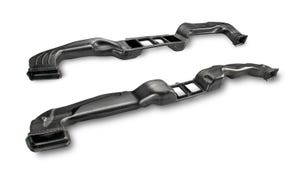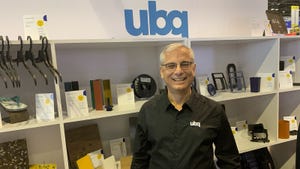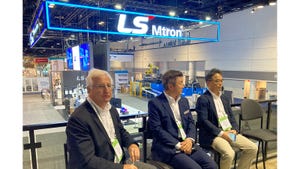Changes ahead for processors, resin makers in Middle East
November 1, 2003
A consolidation of Middle Eastern processors followed by fewer regional polymer makers is predicted in the coming years by Abdulrahman Al-Ubaid, VP polyolefins, Sabic (Riyadh, Saudi Arabia).
"Reliance on relatively low-cost raw materials will no longer be sufficient in an increasingly competitive environment," Al-Ubaid told attendees of the recent Dubai Plast Pro 2003 conference, organized by MBS (Au, Switzerland). "Our successes to date are dependent on the selection of high-performance technologies. But we are, as yet, technology followers, and we believe there are excellent competitive reasons to pursue Middle Eastern-based industry-leading technologies."
He warned that the Middle Eastern processing industry, although growing rapidly, is "quite fragmented with many small producers, mainly local-market focused." He said his company''s most recent study of regional processors showed they tend to have lower equipment-utilization rates compared to international competitors, driving fixed costs up considerably.
Henry F. Roth, Sr. VP at Equate Petrochemical (Safat, Kuwait), warned processors to expect fewer choices of polymer grades in the future as costs for resin producers increase. He admitted his company was concentrating on fewer grades in order to cut costs, which will be its guideline to future developments. He said cheap feedstock and convenient location to Far East markets are only two factors governing Middle Eastern competitiveness. But increasingly needed services such as cheap power and an abundance of water also have to be factored in to the fixed costs of polymer production. He says it is far cheaper to expand existing facilities than invest in greenfield operations. Rising freight charges are also limiting competitiveness. Equate is hoping to increase its 11% share of bulk polymer shipments over bagged material in the future to reap better economies of scale.
To maintain growth in the Arabian Gulf region, better cooperation to eliminate tariffs, regulations, and barriers to motives for free goods needs to occur. He also says more private-sector involvement, rather than government domination, is necessary in the polymer sector.
Kaspar Evertz, Sr. VP licensing and technology transfer, Basell (Milan, Italy), said polyolefin plant capacities, speculated to increase to 600,000 tonnes/yr by 2010 in the region, may suffer from grade-change penalization due to transition losses and higher off-spec production volumes. To "harvest economy-of-scale benefits, minimization of grades is targeted," he says. To get the benefits wanted from "jumbo" plants, he thinks producers will have to use cascade technology, which allows grade tweaking in the reactor.
Laith Latif, technical engineer at Qatar Petrochemical (Doha, Qatar), sees plenty of life left in low-density polyethylene (LDPE) despite continuing inroads being made by LLDPE. In the Middle East, he says LDPE for extrusion coating applications is growing three times faster than LLDPE/LDPE films. He points to the region''s climatic conditions, which make extrusion coated beverage packaging more suitable.
Hesham Raafat, CEO of Oriental Petrochemicals (Suez, Egypt), lamented that his country had not started 15 years ago with more petrochemical investments. As a result, Egypt''s demand for PE (running at 6% annually) and PP (8%) through 2010 will only be met by imports, despite a second polypropylene train which Oriental hopes to have onstream by 2007.
Iran''s huge polymer output, which in two years was expected to top 5 million tonnes (June MP p. 15; MPI p. 13), may see some delay through 2008, says A. Maleki, general manager polymer marketing, Iran Petrochemical Commercial Co. (Tehran, Iran), due to construction holdups. But thereafter it should be on track to propel the country to the number-two resin-producer spot in the region after Saudi Arabia, he says.
Robert Colvin [email protected]
You May Also Like


